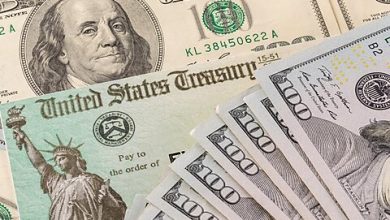CBDC Legislation Recap

Several members of Congress have introduced legislation in response to the concerns that have been voiced over central bank digital currency, or CBDC. To help keep everyone up to speed, the table and paragraphs below offer an overview of the bills that have been introduced during the 118th Congress.
Editor’s Note: The Cato Institute’s Center for Monetary and Financial Alternatives has produced research demonstrating the net risks of CBDCs, and proposed ways for Congress to protect Americans from CBDCs. The Cato Institute does not support any particular piece of legislation. The information below is an educational resource only.
No CBDC Act
Introduced by Senator Mike Lee (R‑UT), the No CBDC Act would prohibit both the Federal Reserve and the Department of the Treasury from minting or issuing a retail CBDC (i.e., a CBDC that would be used directly by individuals). The bill would also prohibit intermediated CBDCs where financial institutions are enlisted to maintain customer accounts on behalf of the government. Furthermore, the bill prohibits the Federal Reserve from using a CBDC on its balance sheet which sets the groundwork for taking wholesale CBDCs off the table. Finally, the bill would also prohibit the Federal Reserve from using a CBDC to conduct monetary policy.
Co‐sponsors: Senators Ted Cruz (R‑TX), Mike Braun (R‑IN), and Rick Scott (R‑FL)
CBDC Anti‐Surveillance State Act
Introduced by Representative Tom Emmer (R‑MN), the CBDC Anti‐Surveillance State Act would prohibit the Federal Reserve from issuing a retail CBDC. The bill would also prohibit the Federal Reserve from using a CBDC to implement monetary policy. Finally, in response to the Federal Reserve’s research and development on CBDCs, the bill would require the Federal Reserve to report the status of CBDC pilot programs to Congress on a quarterly basis.
Co‐sponsors: Representatives French Hill (R‑AR), Warren Davidson (R‑OH), Mike Flood (R‑NE), Ralph Norman (R‑SC), Byron Donalds (R‑FL), Andy Biggs (R‑AZ), Barry Loudermilk (R‑GA), Pete Sessions (R‑TX), Young Kim (R‑CA), Nancy Mace (R‑SC), Scott Fitzgerald (R‑WI), Bryan Steil (R‑WI), Don Bacon (R‑NE), Mike Bost (R‑IL), Jefferson Van Drew (R‑NJ), August Pfluger (R‑TX), Anna Paulina Luna (R‑FL), Kevin Kiley (R‑CA), Rudy Yakym (R‑IN), Jeff Duncan (R‑SC), Debbie Lesko (R‑AZ), Josh Brecheen (R‑OK), Glenn Grothman (R‑WI), William Timmons (R‑SC), Bill Posey (R‑FL), Marjorie Taylor Greene (R‑GA), David Rouzer (R‑NC), Michael Cloud (R‑TX), Austin Scott (R‑GA), Mike D. Rogers (R‑AL), Mary E. Miller (R‑IL), Christopher H. Smith (R‑NJ), David Valadao (R‑CA), Keith Self (R‑TX), Guy Reschenthaler (R‑PA), Ronny Jackson (R‑TX), Paul A. Gosar, (R‑AZ), Pat Fallon (R‑TX), Randy Weber (R‑TX), and Jake LaTurner (R‑KS)
S. 887
Introduced by Senator Ted Cruz (R‑TX), S. 887 would prohibit the Federal Reserve from offering a CBDC directly to individuals (i.e., a retail CBDC), maintaining accounts for individuals (i.e., FedAccounts), and offering any products or services directly to individuals. In short, it seems that the bill seeks to block attempts to have the Federal Reserve get into the business of commercial banking.
Co‐sponsors: Senators Mike Braun (R‑IN), Chuck Grassley (R‑IA), and Rick Scott (R‑FL)
Power of the Mint Act
Introduced by Representative Jake Auchincloss (D‑MA), the Power of the Mint Act would prohibit both the Federal Reserve and the Department of the Treasury from issuing a central bank digital currency. The bill makes it explicit that any decision to move forward with a CBDC must first be authorized by Congress. Notably, the Power of the Mint Act is the first bipartisan piece of legislation to address CBDCs during this Congress—Representative French Hill (R‑AR) joined Representative Auchincloss on the House floor as an original cosponsor during the bill’s introduction.
Co‐sponsors: Representatives French Hill (R‑AR) and Barry Moore (R‑AL)
Digital Dollar Pilot Prevention Act
Introduced by Representative Alex X. Mooney (R‑WV), the Digital Dollar Pilot Prevention Act would prohibit the Federal Reserve (both the board and regional banks) from establishing pilot programs to test CBDCs without approval from Congress. Given recent concerns about CBDC cronyism, the bill also makes a point to explicitly state that the Federal Reserve can not circumvent this prohibition by partnering with the private sector to contract out CBDC development.
Co‐sponsors: Representatives Pete Sessions (R‑TX), Bill Posey (R‑FL), Ralph Norman (R‑SC), Byron Donalds (R‑FL), John W. Rose (R‑TN), Andrew Ogles (R‑TN), Jeff Duncan (R‑SC), W. Gregory Steube (R‑FL), Randy Weber (R‑TX), Glenn Grothman (R‑WI), Ronny Jackson (R‑TX), Victoria Spartz (R‑IN), Harriet M. Hageman (R‑WY), Bob Good (R‑VA), Josh Brecheen (R‑OK), Nicholas A. Langworthy (R‑NY), Keith Self (R‑TX), and Thomas Massie (R‑KY)
Conclusion
With so many proposals on the table, the next steps for policymakers will likely involve debates over where to draw the lines on the distinctions between the different bills. Ideally, Congress will prevent both the Federal Reserve and the Treasury from creating a CBDC in retail, intermediated, and wholesale forms.





